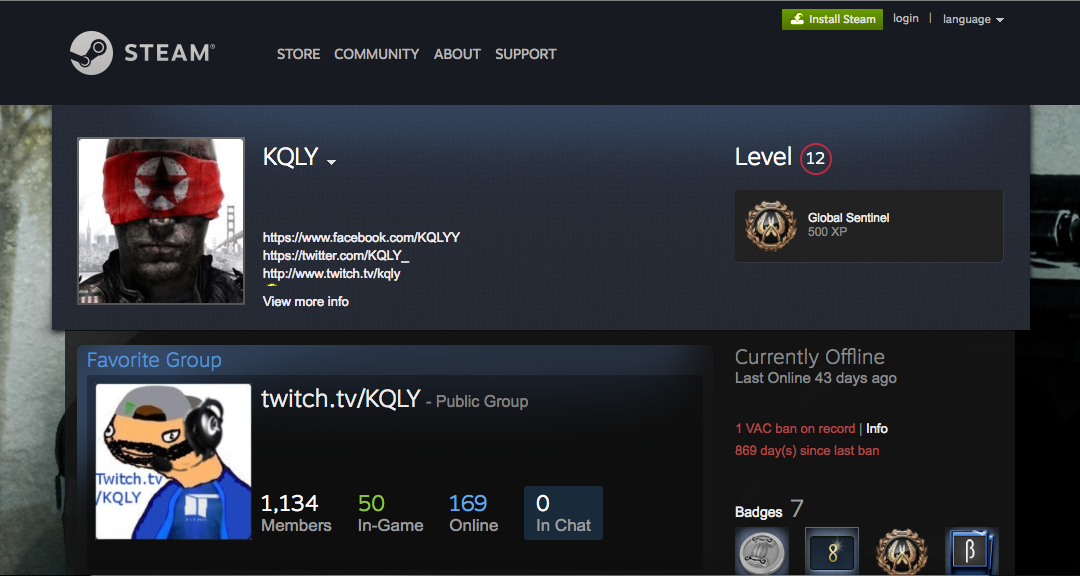Daily Wonders and Discoveries
Explore the latest news and intriguing insights from around the world.
VAC Ban Chronicles: Adventures in Counter-Strike Dilemmas
Dive into the VAC Ban Chronicles! Uncover wild tales and dilemmas from the world of Counter-Strike. Don’t miss out on the action!
Understanding VAC Bans: What You Need to Know Before Playing
VAC bans, or Valve Anti-Cheat bans, are an essential aspect for gamers who play on platforms like Steam, particularly in competitive games such as Counter-Strike and Dota 2. A VAC ban is automatically applied to a player's account when cheating software is detected while playing a game that uses the VAC system. Understanding how VAC bans work and their consequences is crucial for maintaining a fair gaming experience. As a player, you should be aware that once a VAC ban is enforced on your account, it affects not just one game but all games tied to that specific title, which could lead to losing access to your favorite titles permanently.
Before diving into the world of online gaming, it's vital to know that VAC bans are not temporary; they are permanent. This means if you receive a VAC ban, you will not be able to play the affected games on secure servers again. Additionally, players who attempt to circumvent this system, either by using alternate accounts or cheat programs, risk further sanctions from Valve. To ensure a smooth and enjoyable gaming experience, always adhere to the rules set by the developers, and remember that a fair game is not just about winning, but about playing with integrity.

Counter-Strike is a highly competitive multiplayer first-person shooter that has captured the hearts of gamers worldwide. Players engage in intense tactical matches, focusing on strategy, teamwork, and skill. Many players look for optimal settings to enhance their performance, such as aleksib settings, which can significantly impact gameplay.
Top 5 Common Mistakes That Lead to VAC Bans in Counter-Strike
When it comes to playing Counter-Strike, one of the most frustrating experiences is receiving a Valve Anti-Cheat (VAC) ban. Understanding the top mistakes that lead to these bans is crucial for maintaining a healthy gaming experience. One significant error is using third-party software or cheat programs. Many players believe they can enhance their skills with hacks, only to find their accounts banned as a result. It’s essential to always play fair and avoid software that alters game mechanics.
Another common mistake is sharing accounts with others. Whether it’s friends or unknown players, account sharing increases the risk of exposing your account to cheats that could lead to a VAC ban. This is because Valve tracks every action associated with an account, and suspicious activity can result in punitive measures. Additionally, intentionally trying to exploit glitches or using game bugs to gain an unfair advantage can also get you banned. Remember, staying within the bounds of fair play is the best way to enjoy the game without facing a VAC ban.
Is Your VAC Ban Permanent? Exploring the Myths and Realities
When discussing the topic of VAC (Valve Anti-Cheat) bans in gaming, a common question arises: Is your VAC ban permanent? Many players are often led to believe that these bans might be temporary or possibly able to be overturned after a certain period. However, the reality is that a VAC ban is indeed permanent. Once a player is flagged for cheating or any other behavior that violates VAC's terms, the ban is implemented across all games that utilize the system. This stringent approach aims to maintain a fair playing environment for all gamers. Players should note that while they may be able to create new accounts, any further violations will likely result in additional penalties.
Despite the clarity surrounding VAC bans, various myths and misconceptions continue to circulate among the gaming community. For instance, some believe that simply appealing to Valve about the ban can lead to its removal, but this is largely untrue. VAC bans are typically non-negotiable, and any attempts to circumvent them can lead to further consequences. Players might also think that using new software or hardware can lift the ban; however, the VAC system is designed to detect such attempts. It's essential for gamers to understand the lasting impact of a VAC ban to avoid engaging in actions that could lead to account penalties in the first place.